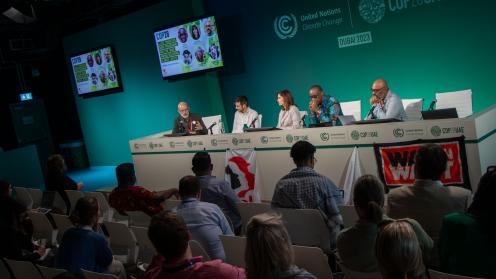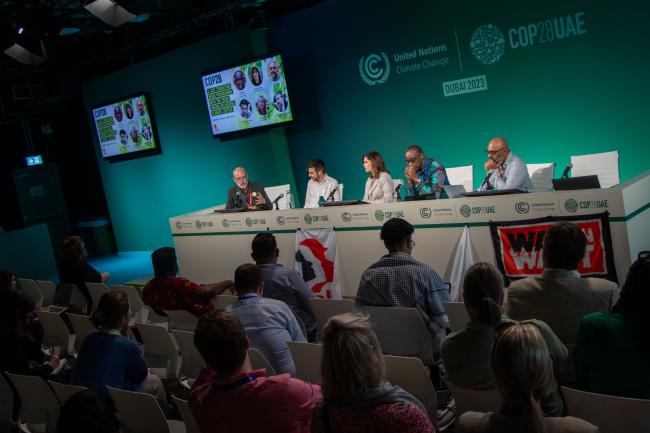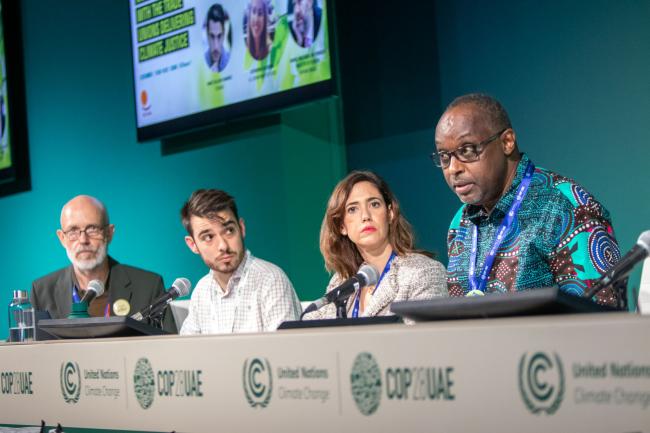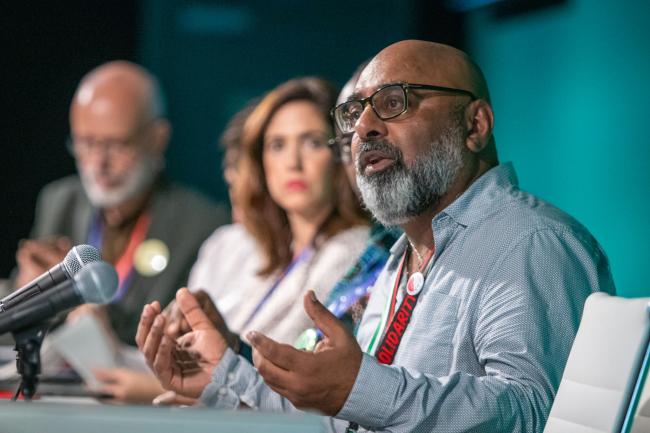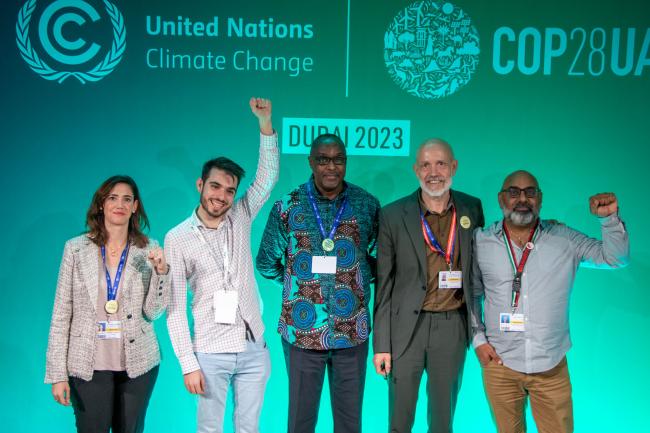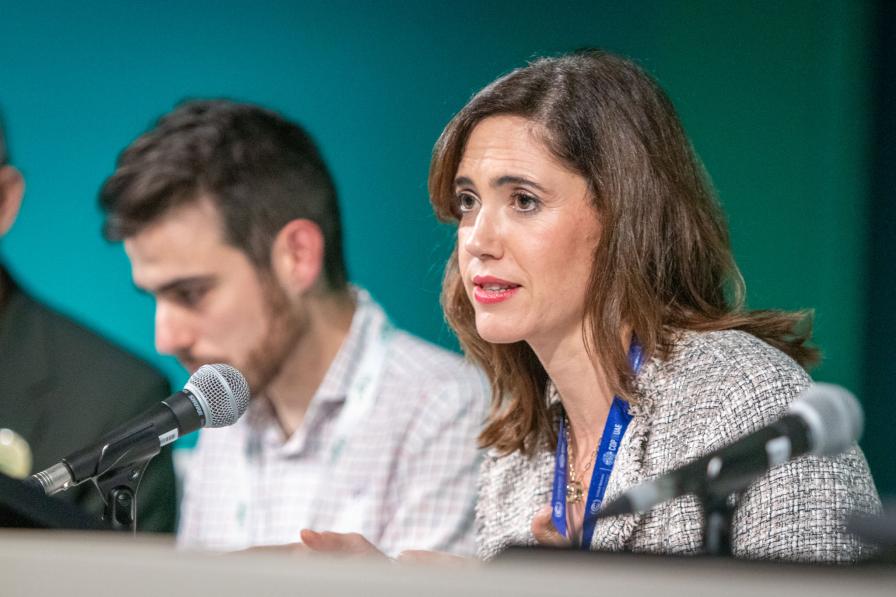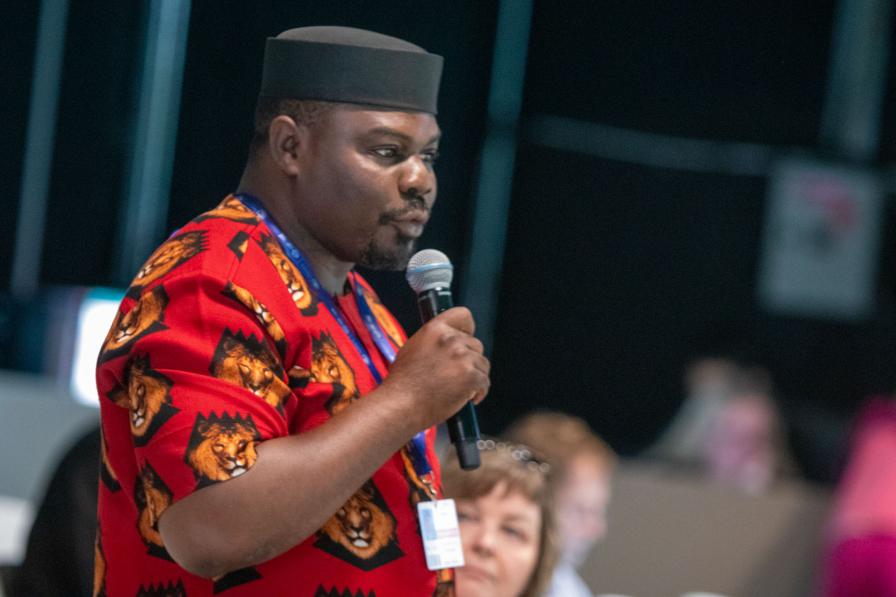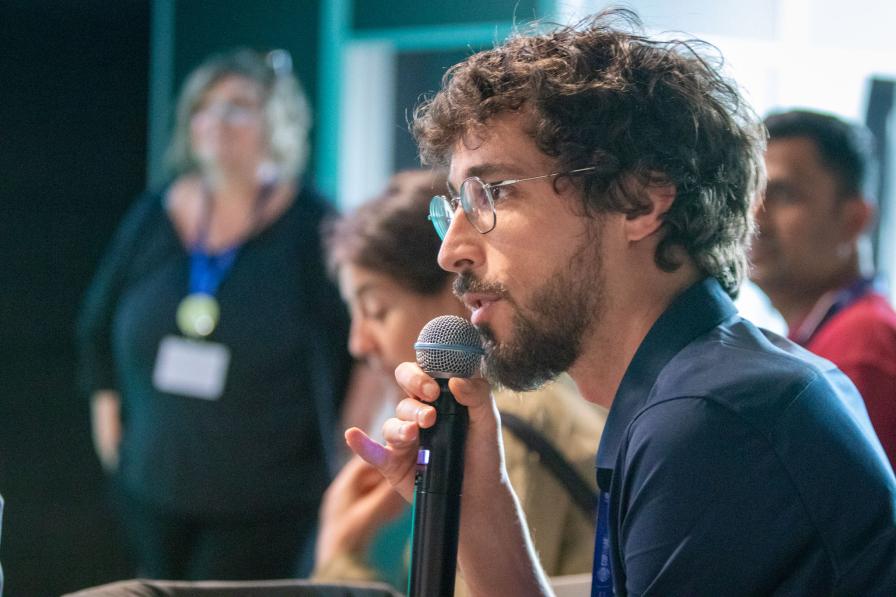About
Representatives of trade unions, workers, and youth called for solidarity between climate and labor movements to achieve a just transition and combat the climate crisis. This event stressed basic rights – labor, energy, food, and others – at stake in the push for climate and social justice.
A Just Transition Work Programme with the Trade Unions Delivering Climate Justice
Effective implementation of the Just Transition Work Programme (JTWP), established at COP 27, requires the full participation of workers and trade unions to ensure a socially just transformation of the world’s infrastructure and energy systems, which upholds and extends labor rights. This event brought together trade union and youth representatives as well as human rights advocates, who emphasized the importance of solidarity between the climate and labor movements and framed labor rights as central to combating the climate crisis.
Eric Manzi, Deputy General Secretary, ITUC, moderated the event and opened the dialogue by emphasizing the critical role that labor can and must play in achieving a just transition, saying that workers and unions must have a seat at the negotiation table. He stressed that protecting labor rights will build trust in society and that ITUC is ready to engage with decision-makers and partners.
Diana Junquera, IndustriALL Global Union, offered multiple examples of unions achieving gains that benefit just transition efforts. In the US, she noted, auto workers went on strike to extend collective bargaining to workers from technology companies who are now integral to the automotive sector. In Sweden, she continued, where 90% of the workforce is unionized, workers striking at Tesla to negotiate a collective bargaining agreement have been supported by actions in other sectors, such as transportation, postal, and electrical industries. Battery supply chains worldwide are also being organized to fight for their rights, while in Colombia unions are working with mining companies and the government to achieve a just transition for coal miners, she added. "We keep fighting," Junquera emphasized.
Marc Collado Ramírez, YOUNGO, highlighted the struggles of young workers, who often face lower salaries, worse working conditions, and precarious part-time jobs. He emphasized that youth are the future and must have a seat at the table to underscore the linkages between the world of work and climate action. Ramírez emphasized the need to raise awareness among youth workers and establish a unified movement that bridges the climate and labor movements. Key to this goal is establishing a social dialogue, which requires enhancing forms of public participation.
Bert de Wel, ITUC, pointed out that a just transition is about concrete action on the ground in companies and communities. He noted that climate justice and equity is crucial for climate solutions, “and that is where we come in because we have the tools to deliver on climate justice,” as unions negotiate the distribution of wages and other benefits. He applauded work undertaken in the global South to engage actively on just transition.
Asad Rehman, War on Want, emphasized that the climate crisis is a systemic crisis and that addressing that it requires a positive vision of change that extends beyond national borders. He urged thinking about change in terms of basic human rights, including labor, energy, and food rights, and underscored the need for a common agenda highlighting public services rather than privatization.
During a question and answer period, audience members asked about the sharing of best practices for organizing, the role of youth in resisting consumerism and commodification, and the capacity of labor to resist multinational companies and pressure international supply chains.
Junquera noted her organization’s work to provide best practice guides, including text that can be used to support just transition in collective bargaining. She stressed the need to maintain dialogue with big companies to ensure that workers are not the ones left paying the bill for just transition. She also mentioned many blind spots in international supply chains where workers are not adequately protected and that organizing is key. On youth, Ramírez stressed the need to resist neoliberal visions that undermine collective action, including the vision of people as consumers. He advocated for youth councils at the local level to inspire, organize, and scale up.
Rehman closed the event by urging people to ask “bigger questions,” such as who owns energy and what energy is for. He stressed that loans and the “logic of extractivism,” which traps the global South into servicing external debt, undermines social and climate justice. Making connections between climate justice and labor rights, he explained, means that workers cannot be seen as peripheral to the climate fight but rather as central. Rehman emphasized that building solidarity and a “movement of movements” will be essential to achieving a just transition, which means “organizing beyond the factory gates.”
Organizer: International Trade Union Confederation, IndustriALL Global Union, War on Want
Contact: Bert De Wel | Bert.DeWel@ituc-csi.org
For more information: https://www.ituc-csi.org/
To receive free coverage of global environmental events delivered to your inbox, subscribe to the ENB Update newsletter.
All ENB photos are free to use with attribution. For this COP 28 side event, please use: Photo by IISD/ENB | Matthew TenBruggencate.
